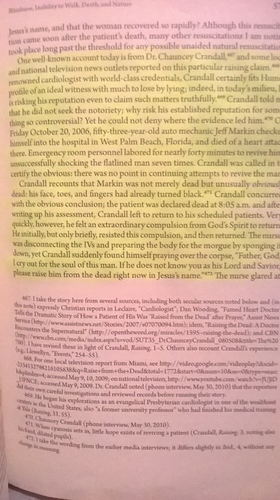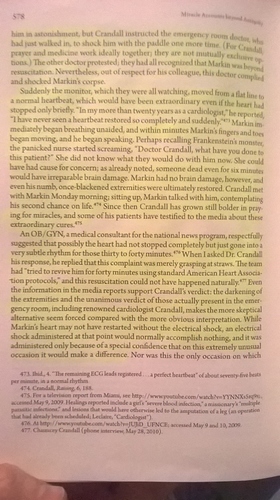It’s been a while since I last appeared in this forum, but here is a question that has been bugging me lately. In many debates in religion/theology, or even philosophy, I frequently see this pattern where the person defending the possibility of an afterlife/survival of consciousness after death sometimes makes some decent arguments for why that might be the case, only to then start to present very questionable evidence going from near death experiences and “evidence” for reincarnation to psi phenomena and ghosts. It is almost like they believe that in order to believe in those things one needs necessarily to believe that they would cause observable phenomena, or as an alternative hypothesis, that they need to believe these phenomena are true to reinforce their beliefs. I don’t really see why that needs to be the case. One could imagine several plausible explanations as to why we could have persistence of consciousness without evidence through these phenomena, I can immediately think of two such scenarios.
1 - Let’s say that the consciousness of the deceased person remains to some degree, but it has no memories because they were all stored in the brain (imagine a person with brain damage or alzheimer’s as an analogy). In such a case, even if the person did experience all sorts of weird things during a near death experience, it would be actually expected that they would not remember anything after regaining consciousness, neither would they have any memories or evidence of that if they reincarnated in a different body.
2 - If the souls of the deceased indeed go to a separate reality in the afterlife, as many religions claim, it would not be weird that they could not communicate back, unless God or something like that wished for that to be the case. But in such a scenario we would have a miracle, not a supposedly reproducible paranormal phenomena.
I personally believe that the possibility of persistence of consciousness is plausible due to difficulties in solving the mind-body problem with purely naturalistic explanations (see Leibniz's gap - Wikipedia for a brief thought experiment highlighting that). Nonetheless, I’ve always found all of these “evidences” very suspicious. We do have very good evidence for the subjective qualities of consciousness, since we experience them everyday (the old “I think, therefore I am” idea), and that does require an explanation, which makes discussions of mind-body problems relative to that matter relevant. However, I don’t think the same can be said for paranormal phenomena (which has not been rigorously shown to be legitimate up to this day), they would only need an explanation after being properly demonstrated to be existent.
So, wrapping up this whole rant: Do you think christians and other believers in general should be expected to give this kind of evidence or should hope to find it in order to justify their beliefs? Or is that another misconception about religion and metaphysics in general?
EDIT:
Just making two points clear to avoid confusion:
1 - I know there is evidence in controlled studies that NDE’s actually happen, in the sense that people experience them. But I haven’t seen any strong evidence that they are paranormal occurrences. Maybe I’m wrong and that evidence will eventually appear, but I’m really not convinced so far.
2 - Christians might say that the belief in the resurrection of Jesus or other events in the bible would prove the afterlife, but that is a matter of faith, and not of “scientific” evidence that people often claim to exist in these debates, which is what I’m talking about.




